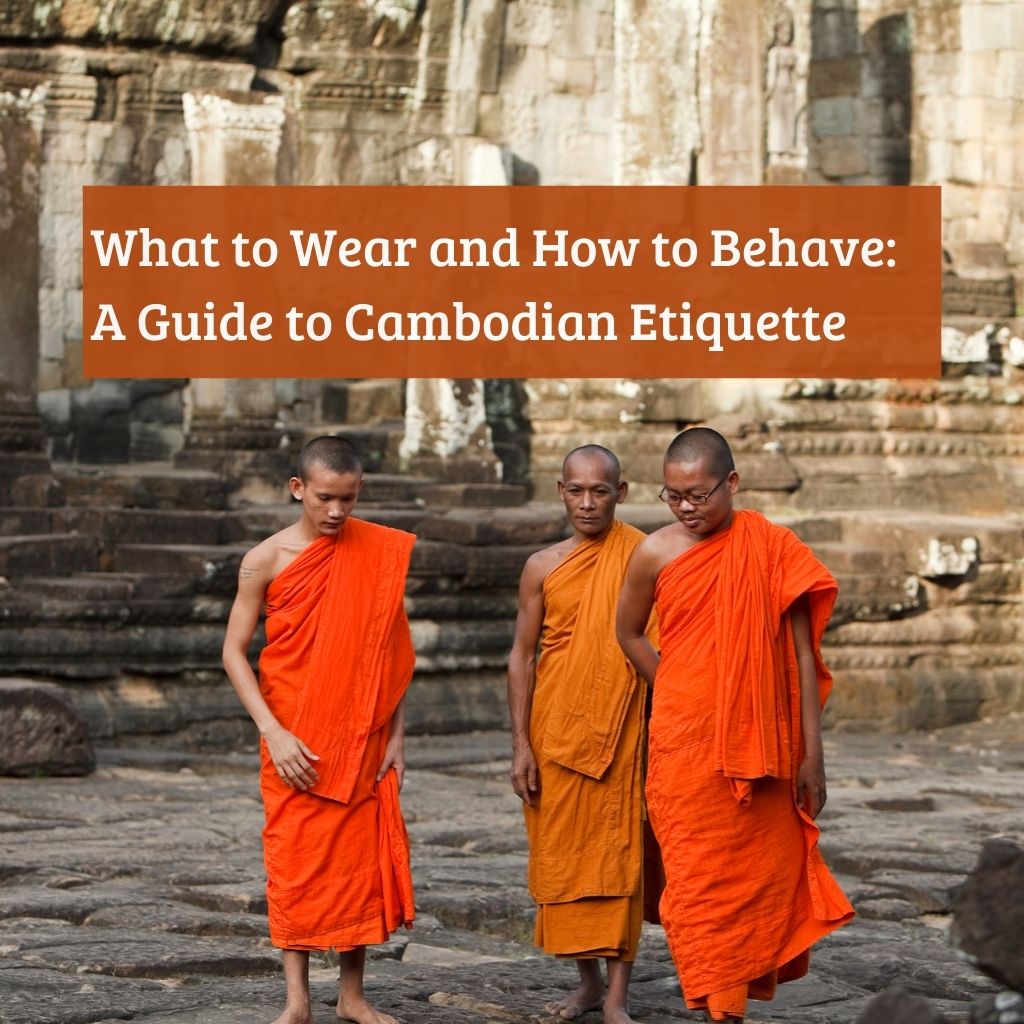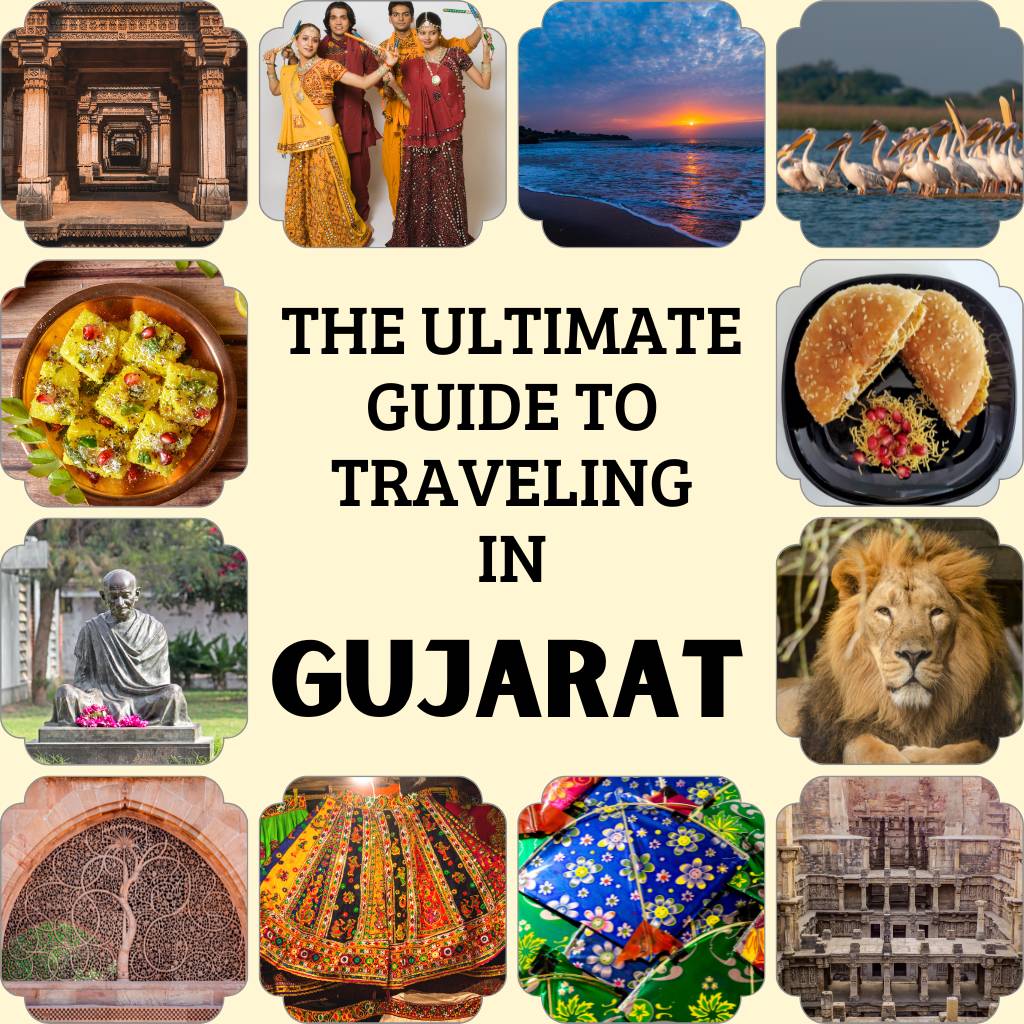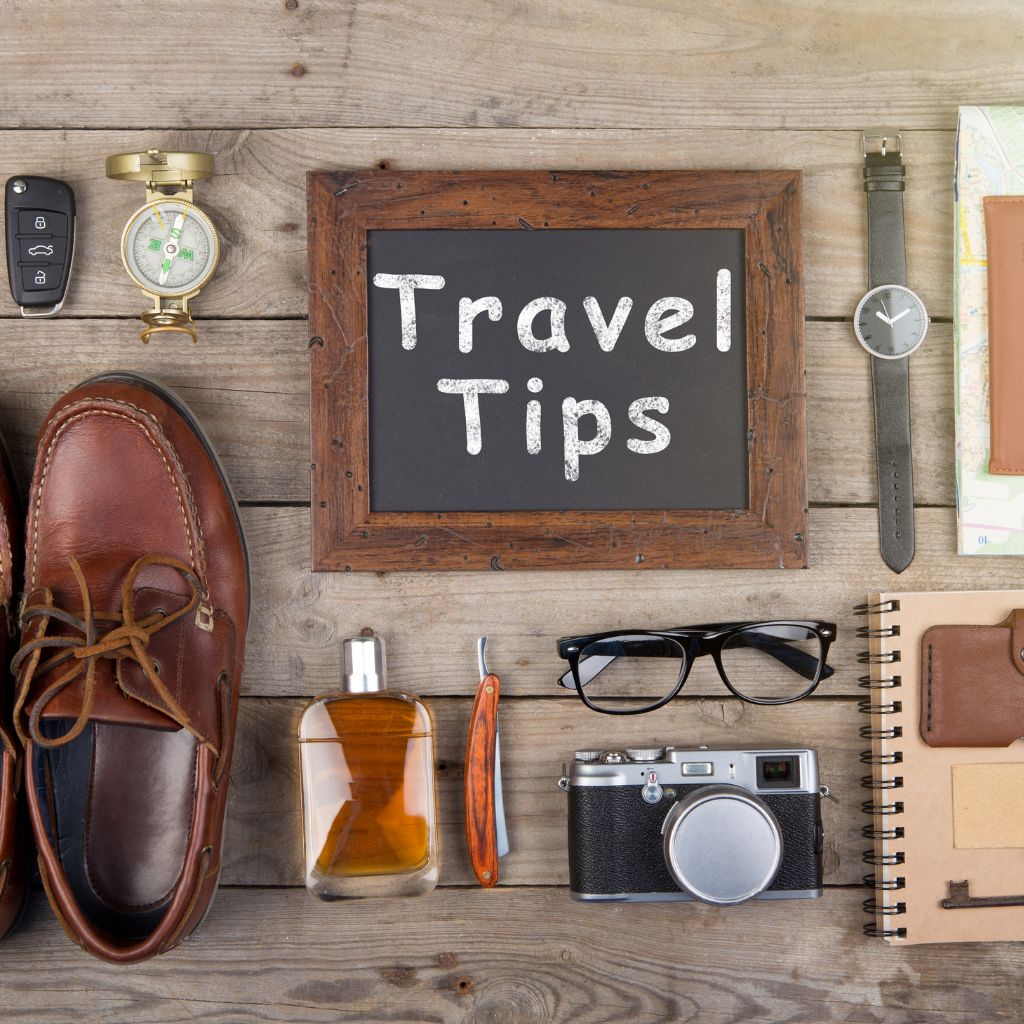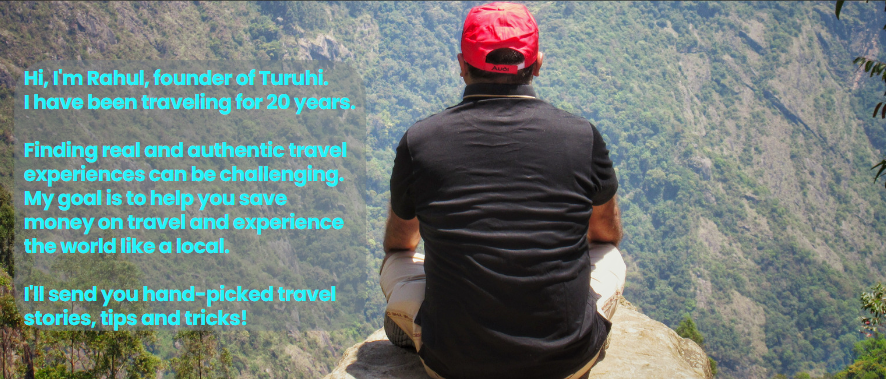When traveling to a foreign country, it’s important to be aware of the customs and etiquette that are practiced there. Not knowing what is considered appropriate behavior can lead to embarrassing and uncomfortable situations.
I’ve spent a lot of time traveling to and living in Cambodia. Here, I’ll give travelers a guide to Cambodian etiquette. You’ll discover the DOs and DON’Ts of suitable attire, courteous behavior, and mingling with locals. So this will help you avoid cultural faux pas whether you’re planning a trip to Cambodia or just want to be ready in case you get there.

1. Greeting
In Cambodia, it is customary to greet others with a gesture called “Som Pas” which is the act of putting your palms together in a prayer-like position and bowing your head slightly. This is the most common form of greeting and is considered polite and respectful. Cambodians use Som Pas to both greet and show respect. It’s impolite not to return a Som Pas.
Choum reap sor is a Cambodian phrase that is used during Som Pas. It is similar to the English phrase “Hello.” When two people meet, they may say choum reap sor to each other. They will again Som Pas and say Choum reap lir when departing. It is always rewarding to learn a new language.

Shaking someone’s hand when you first meet them is considered impolite, especially if the person is of the opposite sex of the older generation. Touching is not common among Cambodians, especially with the opposite sex. Although they are quickly adopting Western culture due to tourism, it is prudent to follow their customs to quickly make conversations with locals.
2. Salutation
In Cambodia, it is customary to address people using salutations such as Lok (Mr.) or Lok Srey (Mrs.), followed by the person’s first name. In some cases, using the family name may be considered impolite, as many Cambodian family names are derived from the father, grandfather or ancestor. However, this is not always the case, and it is best to use the first name unless you are sure that the family name is acceptable. By using the proper salutation and addressing someone by their first name, you will show them the respect they deserve.
In Cambodia, it is customary to show respect to elders by using salutations when addressing them. Older men are typically referred to as Ta (grandfather), Po (uncle), or Bang (brother), while older women are called Yeay (grandmother), Ming (aunt), or Bang Srey (sister). It is impolite to address a person older than you without a salutation. That said, it is OK to call people of the same age or younger by their given name without a title. This allows for a more casual and familiar way of talking that is more common among friends and family members. In general, Cambodians are very respectful of elders and take care to show this respect in their speech.
3. The body language
In Cambodian culture, the head is considered the highest part of the body and is thus treated with great respect. Touching someone’s head is thought to harm their energies because the head is seen as the focal point of intelligence and spiritual substance. As a result, even if you’re just trying to be friendly, it’s best to avoid touching a local’s head. Furthermore, Cambodians are very conservative when it comes to sexuality, and public displays of affection are frowned upon. So, if you meet someone for the first time, avoid putting your hands on their shoulders or hugging them.
4. Temple Etiquette
Buddhism has been the predominant religion in Cambodia for centuries, and it continues to play an important role in the country’s culture and society. Monks are highly respected members of the community, and they play an important role in educating people about Buddhism and promoting religious harmony. Wat, the Khmer word for temple, is the center of spirituality in Cambodia. Please follow DOs and DON’Ts while entering the Wat.
- It is considered disrespectful to enter a Wat without taking off your shoes, so be sure to do so before entering.
- It is important to dress modestly and respect the local customs. This means no shorts or sleeveless shirts for men, and no skirts or tank tops for women.
- Avoid pointing your feet at any Buddha statues or images.
- Always sit with your legs bent and feet tucked backward while offering prayers or interacting with monks
- Never stand while talking to a seated monk
- Women cannot touch a monk
- Monks usually do not like to be photographed. Do take their permission before clicking their pictures.
- Do not climb on religious statues or buildings
5. Visiting a local residence
There are a few things to keep in mind if you are lucky enough to make friends while traveling to Cambodia and are invited into a local’s home.
- First and foremost, always take off your shoes before entering someone’s home. This is considered to be extremely disrespectful, and you will likely be asked to leave if you don’t follow this rule.
- It’s also important to remove hats and sunglasses when entering someone’s home, as they are seen as a barrier to communication and connection.
- Another thing to keep in mind is that it’s considered impolite to point with your index finger. Instead, use your right hand to gesture or point.
- Cambodians usually offer water or tea or something to drink and at times food. It is customary to honor the offer even if you just take a sip.
6. Eating Etiquette
Eating is an important part of Cambodian culture, and there are a few things to keep in mind when dining with locals.
- First and foremost, always use your right hand when eating. The left hand is considered unclean, as it is used for toiletry purposes.
- It’s also important to avoid pointing with your chopsticks, as this is considered rude.
- When serving yourself from a shared dish, use the serving spoon instead of your chopsticks.
- Don’t leave food on your plate when you’re finished. This is seen as wasteful, and it’s impolite to do so.
- When invited for lunch/dinner, wait to be told where to sit. Cambodians sit as per the family hierarchy.
- Make sure the eldest person is eating before you start eating.
You might like to read this…
7. Gifting Etiquette
If you’re invited to a local’s home, it’s considered polite to bring a small gift for the host.
Some ideas for gifts include fruits, flowers, pastries, or a nice bottle of wine. If you’re invited to a wedding or a religious ceremony, it’s appropriate to give a monetary gift.
Here are some of the DON’Ts.
- Don’t give someone a gift with your left hand. It is very disrespectful.
- Don’t wrap a gift in the white paper. White is the color of mourning in Cambodia.
- Don’t open the gift when you receive it.
- Don’t gift knives or related things as they are interpreted to sever the relationship.
You can read more about buying gifts and souvenirs in Siem Reap.
8. Sensitive issues
Cambodia is a country that has been through a lot of turmoil in recent history. The Khmer Rouge regime led to the deaths of millions of people, and the country is still recovering from this dark period. As a result, certain topics are best avoided when conversing with locals. These include:
- Many Cambodians suffer from mental illnesses and are reluctant to open up about or discuss their feelings. Being labeled “crazy” carries a negative connotation.
- Cambodians do not believe in counseling unless it is provided by monks.
- Cambodian culture includes both obedience and fear. They are afraid of those in authority and thus do not challenge them.
- Cambodians are very superstitious. They believe in ghosts and black magic.
- Cambodians smile in every situation, good or bad. Don’t judge them solely based on their smile.
In Summary
Cambodia is a beautiful country with a rich culture and history. From the ancient temple complex of Angkor Wat to the bustling capital city of Phnom Penh, there is much to see and do in Cambodia. If you’re planning a trip to this Southeast Asian nation, it’s important to know a few things before traveling to Cambodia. By following these basic tips, you can ensure that you have a respectful and enjoyable trip!





Add a Comment